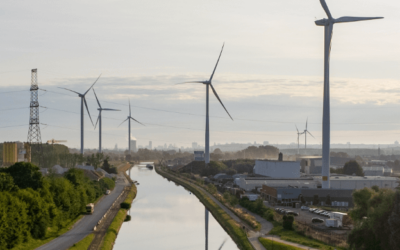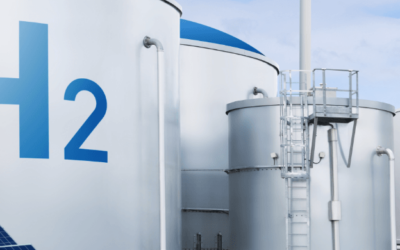Projects of Common Interest and Projects of Mutual Interest
Contact EGENGREENER EUROPEAN ENERGY INFRASTRUCTURE
Projects of common interest (PCIs) and projects of mutual interest (PMIs).
The EU is developing a robust, resilient and greener European energy infrastructure to reduce dependence on external sources. To achieve this objective, the Commission adopted a new list of Projects of Common Interest (PCIs) and Projects of Mutual Interest (PMIs) by the end of 2023. These are projects that will shape Europe’s future energy landscape.
In short
PCI/PMI grant overview
For whom?
Project developers seeking PCI/PMI status.
When?
Project developers seeking PCI/PMI status can apply to the relevant regional groups through a call for proposals launched by the Commission. Projects can be submitted from September through December 2024.
For what?
PCIs are essential infrastructure projects aimed at completing the European internal energy market. This allows the EU to achieve its energy and climate goals by providing affordable, secure, and sustainable energy to all Europeans. At the same time, it aims to achieve a climate-neutral economy by 2050. PMIs are critical cross-border energy infrastructure projects between the EU and non-EU countries that contribute to the Union’s energy and climate policy goals.
- enhance competition in energy markets
- improve EU energy security through diversification of sources
- support the EU’s climate and energy goals by integrating renewable energy.
PMIs must demonstrate their contribution to the energy and climate objectives of the EU and relevant partner countries in the areas of:
- security of supply
- decarbonization
- significant net socio-economic benefits at the EU level.
Only projects related to electricity transmission, offshore grids, hydrogen transmission and CO2 networks and storage are eligible for selection as PMIs.
Overview of
PCIs and PMI’s themes
PCIs and PMIs are selected every two years through a call for proposals, based on predefined criteria and evaluated by multi-stakeholder regional groups. These groups focus on specific types of energy infrastructure:
- electricity
- offshore grid development
- hydrogen and electrolysers
- electricity grids
- gas grids
- CO2 networks.
These are in line with the revised Trans-European Energy Networks (TEN-E) regulation. The selection process prioritizes projects in designated priority corridors, as identified in the TEN-E policy.


Benefits of a PCI/PMI-status
Projects with PCI/PMI status enjoy several benefits:
Expedited planning and permitting.
A single national authority for obtaining permits within three and a half years.
Improved regulatory conditions, including incentives and cost allocation rules across borders.
Reduced administrative costs through streamlined environmental impact assessment processes.
Increased stakeholder engagement through consultations.
Increased visibility for investors.
In addition, PCIs and PMIs are eligible for funding from the Connecting Europe Facility (CEF), the EU fund aimed at improving energy, transport, and digital infrastructure. The CEF programme for 2021-2027 has a total budget of 5.8 billion euros allocated to the energy sector. It is important to carefully define the scope of the PCI/PMI, as CEF proposals are evaluated based on their direct contribution to the implementation of PCIs/PMIs, and the PCI/PMI list is updated every two years.
Get in touch
What can EGEN do for you?
In recent years, EGEN has been involved in several PCI/PMI and CEF applications. Want to know more about PCIs/PMIs and how EGEN can support your project or application? Contact us!
“EGEN supported the Northern Lights project, which received 4 million euros from CEF Energy. This will conduct a FEED study to expand its CO2 transport and storage capacity in Norway to over 5 million tonnes per year to meet increasing demand in Europe.”
Contact Joep Raats →


Keep up to date
News
Two new Horizon calls published for sustainable energy
The European Commission's Horizon Europe Work Programme for 2023-2024 has allocated 188.6 million EUR to support sustainable energy projects within Cluster 5. This cluster covers the areas of Climate, Energy and Mobility, and as such is a vital component of the EU’s...
Three tips for a successful EHB Auction proposal
The European Hydrogen Bank (EHB) is an initiative of the European Commission established in 2023 with the aim to support among other things the EU domestic renewable hydrogen production. At EGEN, we are dedicated to navigating the European Hydrogen Bank Auction...
Unlock your Innovation Fund’s full potential with expert GHG reporting support
Several successful Innovation Fund projects from the first rounds are currently starting of their operations and are therefore also entering their monitoring phase. During this phase, ensuring accurate GHG reporting is crucial to maintain compliant and maximize the...


